NEXT ROUND’S ON ME
Fiasco (noun): A thing that is a complete disaster, especially in a ludicrous or humiliating way.
Fiasco (noun): A bottle or flask. Especially a bulbous, long-necked, straw-covered bottle for wine.
I worry — probably more than is reasonable and definitely far more than is helpful — that whatever I’m working on is going to turn out to be a fiasco.
I’m afraid that this sermon, this project, this class, this event could crash and burn in a ludicrous and humiliating way. And because I get deeply, personally invested in most of my activities, then I have a hard time shaking the sense that I myself might be a fiasco — that my whole life could be a disaster. Which is a stupid amount of pressure.
It’s rough enough when applied to big commitments and major undertakings. But at least that kind of makes sense — a big deal’s a big deal because we know it matters. But I also tend to bring this kind of earth-shattering significance to most of my small, everyday dealings. And that’s just silly.
[in my head] “If this pie crust isn’t flaky then I will have squandered these amazing peaches, which won’t come around again for another year, and I shudder to think of my environmental footprint in terms of food waste, and what kind of world are we leaving for future generations, and I’ve fooled everybody into thinking I’m a good baker, but if they saw this wrecked crust they’d figure out what a colossal good-for-nothing imposter I really am, in every way, and really I should just give up…!”Maybe this is the shadow-side of envisioning the relatedness of everything. A bright and sunshiny conception of infinite connection holds that small efforts, sincere intentions, and simple kindnesses can make a world of difference. The dimmer view can make even the littlest stumble seem like the start of a cataclysm. And I’m not sure how to ameliorate the latter without sacrificing the former.
I mean, absolutely I do want to believe that our small efforts matter. But I’m not so keen on the negative corollary — that tiny mistakes can lead to catastrophe. If everything in the world is, as John Muir noted, “hitched to everything else,” then each of us possesses a tremendous and potentially global creativity. That’s sure sparkly and encouraging! Unless, of course, we’re overly inclined to self-criticism and doubt, in which case every minor misstep or disappointment seems like a trumpet call to the horses of the apocalypse. Ugh.
Part of the key, I think, for me anyway, may be re-imagining the whole paradigm of failure and success. Rethinking the frame that makes one seem “good” and the other “bad.” In which success always leads to heaven on earth, and every failure is a bottomless pit to doomsday.
Failure — when something doesn’t go how we thought it should go, when it doesn’t look like the right outcome or the best outcome — does not have to be the end of anything. It might, in fact, be the very thing we need in order to chart a stronger course. Or to discover something new about ourselves and the world. Indeed, failure is an essential component of most achievement and growth and progress and transformation.
Likewise, that which might at first blush seem like “success” — things turning out exactly as we’d hoped — might really spell a status quo rut, or mean that our objective was underwhelming to begin with, or lead to a false sense of certainty and security.
The truth is — things work out and don’t work out all the time. Sometimes going as expected, sometimes sideways. A hundred successes and failures a day that involve a thousand variables beyond our best intentions and efforts. Stuff happens. And then we’re the ones who make it mean all sorts of things. We make it mean things about ourselves, about how other people are, about how the world is and life is.
Ernest Holmes dealt with it like this [this is my paraphrase of something he wrote several long books about]: Spirit is whole and perfect, and since everything is a part of this universal spirit, everything must be whole and perfect. If something appears to be imperfect then that’s because we’re just getting hung up on temporary outcomes rather than eternal truths. Focus on being the CAUSE — the unstoppable, creative cause of life — rather than being perpetually burdened and undermined by the changeable world of effects.
Which sounds pretty good to me. Effects — outcomes, successes, failures — are always in the past because they have already happened. There’s not a lot to be done about them, and not a lot of power to be had dwelling in them. Knowing ourselves as CAUSE, however, invites us to be present, immediate, more fully alive, and open to possibility.
This doesn’t have to mean denying reality, disregarding the conditions of the world. It does suggest, however, that we practice remembering that our power and creativity doesn’t live in those conditions. The world of effects (outcomes, successes, failures) certainly can inform us; we learn and grow from the feedback life offers. No matter what, though, right here and right now we can know ourselves unbound by all that has come before. What might we do, be, say, change, and create if we weren’t afraid of fucking it all up?
I read a piece this week about the two definitions of fiasco, noted at the top of this essay.
The second meaning is older — literally, a bottle or flask, in Italian. The first meaning, much more common in English today, may come from a tradition in which the loser in a game had to buy the table’s next bottle. So while a fiasco did signify a loss, perhaps even a costly mistake, still, it was part of the game.
In the 19th century, in French theater, it took on the more catastrophic proportions and today’s connotation of dismal flop, public humiliation, and complete breakdown. A fiasco sounds like something from which we might never recover. I get that, especially in a theatrical or performance context, because I know how awful it feels to do poorly in front of others.
But I’m wondering about reclaiming the original sense of the word — that it’s a game, something to play, with others. Especially the idea that the game’s not over! Fiasco, in fact, means that definitely there will be another round. Another chance, more opportunities to create together.
Next round’s on me, friends.
I can’t wait to see you this Sunday, August 18, at 10:00 am, at q-Staff Theatre. We’re located at 400 Broadway SE, on the southeast corner of Broadway and Lead. Plenty of street parking up and down Broadway and also just east on parallel neighborhood streets, Arno and Edith. We have several accessible spaces reserved right in front of the theater, if you need them. XO, Drew
©2024 Drew Groves




